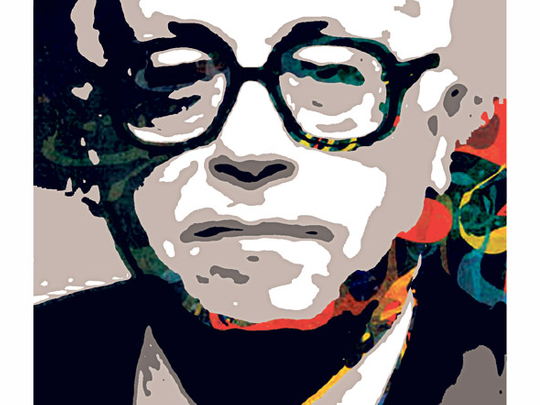
Life was good until I was hit by really painful news. I respect death; it remains an inseparable part of life. But this week brought the sad news of the demise of Fouad Zakaria, the last Arab philosopher, who for decades carried the message of absolute knowledge to the Arab world when few cared about it.
Zakaria, whom I had known for four decades, was my mentor and a great scholar. He was also a wonderful person who treated his students with humility and simplicity.
When we first met, Zakaria was at the peak of his career, as if he was racing against time to work and leave his print for a long time on the history of the Arab nation.
When I joined the Sociology and Philosophy Department at Kuwait University, I did not realise that I was studying under the father of Arab existentialism, who brought knowledge and enlightenment from France to the developing Arab world.
As students, we were very lucky to be taught by Zakaria and other outstanding figures such as great philosopher Dr Abdul Rahman Badawi, besides many pioneers in sociology and philosophy.
However, we never realised the importance of this back then. Kuwait University then hosted leading Arab intellectuals who brought about progressive ideas to build the nation on a strong foundation of reason and action.
These pioneers wanted to continue the march started by the early messengers of renaissance such as Abdul Rahman Al Kawakebi, Jamal Al Deen Al Afghani and Mohammad Abdo. They aimed to create a giant intellectual project in which each generation builds upon the achievements of its predecessor.
Those intellectuals managed to educate an entire generation and mentor individuals who resort to reason and look at the future with new perspectives, leaving behind the ideologies of the dark ages.
There is no doubt that the Arab nation declined after it was ruled by the ignorant in culture and politics. Our nation paid a dear price and was pushed back after a long period of time during which Arabs ruled the world and established a leading civilisation, during the Umayyad and Abbasi Caliphate.
The Umayyad state had all the pillars of civilisation, including a strong army, its own currency and strong official bodies.
The Umayyads also allowed reason to emerge, which was further developed by the Abbasis, who opened the doors for Arabisation of Byzantine sciences. This allowed Arab scholars to educate themselves and develop these foreign sciences with their creativity.
It was during that time that great Arab scientists such as Ibn Rushd (Averroes), Ibn Al Haitham (Alhacen), Ibn Sina (Avicenna), Al Khawarizmi and others emerged.
Yet this enlightenment project, which was carried from one generation to the next, suffered a setback when the dark-age mentality of the Muslim Brotherhood took over a few decades ago.
Pushed back
Unfortunately, it was this mentality that pushed the nation backward, using the great religion of Islam as a pretext for political gains. The development and progress of the Arab nation was a threat to the Muslim Brotherhood because it meant the unavoidable collapse of their ideology and project, which was, indirectly, supported by the Zionist exclusionist agenda.
The evidence was that international intelligence bodies embraced these forces to strike down any attempt of progress and liberation movement in the Arab world, which could be verified by referring to the documents and archives, released regularly in the west.
Today, the Muslim Brotherhood is still close to this destruction project, which targets all the achievements of modern civilisation in our nation. Yet, the Arab and Islamic nations now hold the solutions for many global problems.
Many Arab intellectuals and philosophers believed that the Arab Gulf region is the part from which a new Arab order would emerge, but the forces of darkness were still planning to destroy this project.
The first battle between the two sides in this region took place in Kuwait University when there were attempts to impose segregation between male and female students.
This issue re-emerged recently in Saudi Arabia, when these same forces stood against the project of King Abdullah Bin Abdul Aziz of Saudi Arabia, who is dreaming of a better future for this nation.
The King Abdullah University for Science and Technology, inaugurated by the Saudi king in 2009, was the first institution in the kingdom to have a mixed gender environment, which was bitterly opposed by some parties.
A country like Saudi Arabia needs a monarch like King Abdullah, who puts all resources in the service of education and enlightenment projects and believes that science and education hold the keys to the future.
He also believes that the forces of darkness will not succeed in killing this project, because of the support he enjoys among his people.
It is time the Muslim Brotherhood realised that they are way behind the times, and that the achievements of Gulf Cooperation Council countries are much bigger than their destructive abilities.
It is also time they joined the march of progress and took part in building a viable civilisation, because Islam is not against progress.
In fact, maybe they can learn a lesson from the (Islamic) Justice and Development Party in Turkey, which has proved that a modern and strong state can be created while holding on to Islamic values.
(Dr Mohammad Abdullah Al Mutawa is a professor of sociology.)








